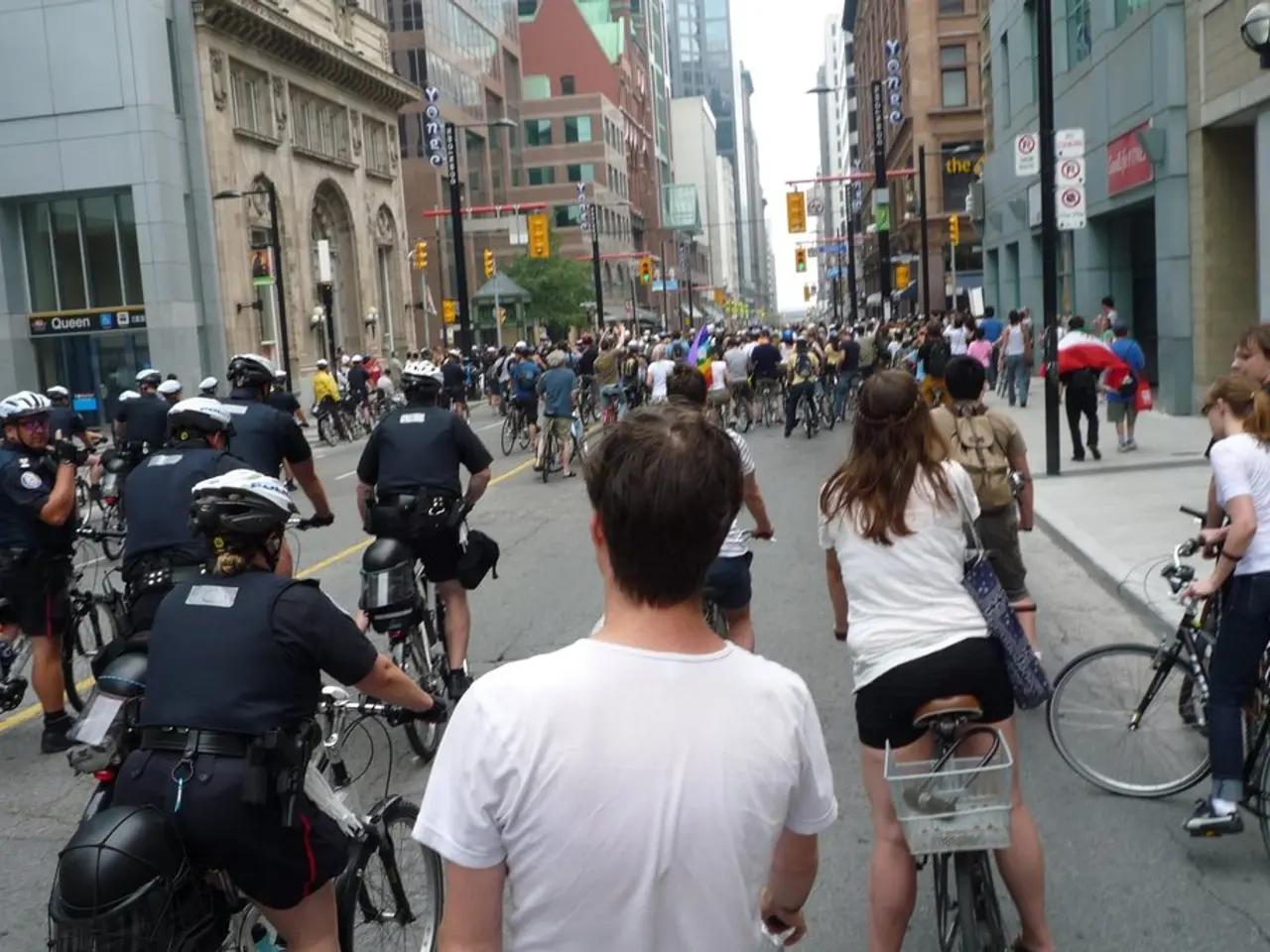"No replacement found acceptable": Philly advocates and authorities uphold EPA regulation amid agency's rollback efforts
Get the Lowdown: Go Green or Go Home? Climate Change Brawl Shakes Philly
Listen up, folks! From the lush Poconos to the bustling Jersey Shore, we're here to talk climate change, and we want to hear what you think. Got a question or a topic you'd like us to cover? Drop us a line!
This week, Center City's LOVE Park played host to a heated protest against the Trump administration's reworking of the Environmental Protection Agency (EPA). Late last month, the EPA revealed plans to roll back numerous air and water protections, most recently targeting emissions caps on power plants and toxins from these plants' facilities. Pennsylvania Republicans cheered the moves, touting benefits for businesses and energy production at a time of increasing electricity demand.
But naysayers counter that these rollbacks would prioritize polluters over people. As the EPA boss, Lee Zeldin, pledges to reconsider, terminate, or restructure dozens of rules, critics cry foul, stating that the EPA's deregulation plan will make Philadelphia's air, water, and soil dirtier, leaving everyday Philadelphians strapped with the bills.
EPA spokespersons, however, argue that they're solely focused on advancing their core mission of protecting human health and the environment—including ensuring clean air, land, and water for every American. They believe the deregulation push will propel both environmental protection and economic growth. Meanwhile, opponents claim the prior administration's focus on limiting American energy would have increased reliance on foreign fossil fuels, hurting Americans' wallets.
More Background:
Trump's EPA's Deregulation Push
Last spring, Zeldin promised to reconsider, terminate, or restructure dozens of rules, policies, and programs. This so-called "greatest day of deregulation" our nation has seen may take time, as reversing regulations typically involves a lengthy process. Notably, proposed rollbacks must be put up for public comment before they become set in stone.
Key among the planned changes is the potential nixing of a 2009 determination by the EPA that greenhouse gases pose a danger to public health, known as the endangerment finding. This "keystone" of several air protections may unravel decades of air regulations if eliminated, opponents warn.
Moreover, In the Trump administration's quest to pare back EPA staff, particularly those addressing pollution's disproportionate impact on low-income communities and communities of color, a number Philadelphia-area nonprofits have seen their grants frozen or canceled. And, the House Republicans have proposed a bill that would quickly phase out renewable energy tax credits, jeopardizing projects like solar panels on Pennsylvania schools, and end programs reducing methane leaks from oil and gas operations.
Advocates Say Federal Enforcement is Essential:
While state and local government agencies, like the Pennsylvania Department of Environmental Protection, may set and enforce some environmental standards, advocates emphasize the importance of federal oversight and guidance, especially because pollution frequently spans state lines.
State and local agencies also levied on the EPA's expertise and robust resources when crafting their regulations. "There's no substitute for the experience of EPA administrators," said state Sen. Nikil Saval (D-Philadelphia), after speaking at Monday's event. He added that the EPA's large budget and workforce provide invaluable assistance in enforcing regulations and mitigating pollution.
Philadelphia's Office of Sustainability's Director of Sustainability, Elizabeth Lankenau, highlighted the EPA's essential role in tracking emissions data, limiting the overflow of sewage into rivers, regulating pesticides, and setting standards for common air pollutants. Lankenau also noted that Philadelphia's Black and Hispanic children are hospitalized with asthma symptoms at disproportionately high rates, urging federal action against pollution and the resulting health disparities.
Our Take:
In a nutshell, the Trump administration's regulatory changes and policy shifts are centered on reducing federal environmental regulations, leading to increased pollution. While the administration justifies these moves as promoting economic growth, critics argue that they prioritize polluters over people, disproportionately impacting communities of color and low-income areas.
- The deregulation plan proposed by the EPA, as part of Trump's administration, is a contentious topic in environmental science, particularly with regards to climate change.
- The financial implications of these regulatory changes are under scrutiny, as opponents claim that prioritizing polluters over people could lead to increased costs for everyday citizens, despite the administration's assertions of promoting economic growth.
- The general news is buzzing with discussions surrounding the role of politics in shaping environmental regulations, with some advocates arguing that federal enforcement is essential to ensure clean air, land, and water for all Americans, particularly in urban areas like Philadelphia.




